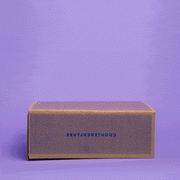-
Kenya is known for its exceptional coffee quality, but it has traditionally been difficult to build direct purchasing relationships with growers. In the early 2010s, we set out to create alternative pathways to partner directly with small estates interested in quality-improving collaborations. That pursuit led us to Peter Mbature at Kamavindi Estate.
From the start, Peter was very engaged with improving quality, and he found success quickly, working with his siblings to take coffee at their family’s third-generation farm from good to excellent in the first couple of seasons we worked together. We collaborated to work around logistical and institutional barriers to develop pathways towards export that began with a direct negotiation between roaster and grower. With the goal of rewarding quality and retaining more of coffee's export value at the farm level, Peter began working with his friends and neighbors, providing training on best quality practices and connecting them to buyers interested in this type of partnership. These trainings and connections are the foundation of our Kenyan coffee sourcing program today.
In the last couple of years, Peter has built on this model by starting his own export company, Kamavindi Coffee Lab, which helps small, quality-focused growers connect more directly with specialty buyers. In 2022, utilizing a Seeds grant, Peter built a cupping lab and training center on Kamavindi Estate, where he hosts farmers and organizations interested in improving. The lab provides a space for growers to taste their coffee in a professional quality control setting to better understand how different variables in cultivation and post-harvest processing impact flavor.
Kamavindi is not only an exceptional representation of the vibrant flavors possible in Kenyan coffee, but a model of what can happen when growers take an active role in shaping their supply chain to better reflect their values and vision.
-
Harvest
Process: Washed
Certifications: Kosher
Elevation: 1,600–1,650 meters
Variety: SL-28, SL-34, Ruiru 11
Harvest Time: October 2024–January 2025
Available: Through late August 2025
-
Kamavindi Estate
Length of Partnership
1995 2015 202612 years
Location

-
We believe in paying more.
Since 2009, we have published an annual transparency report to serve as a blueprint for our green coffee purchasing practices and a response to chronically low prices in the coffee industry. We believe paying more for green coffee is an important investment in the long-term viability of our coffee-growing partners’ businesses and our supply.
$0 $8$7.20 (Free on Board)/lb - Our price for Kamavindi
$3.33 FOB/lb - Fair Trade Certified Minimum
$3.13 FOB/lb - Average C Market Price
-
![]()
Sustainably-Sourced
-
![]()
Quality-Focused
-
![]()
B Corp Certified
-
![]()
Transparently Traded
![]()
Sustainably-Sourced
![]()
Quality-Focused
![]()
B Corp Certified
![]()
Transparently Traded












